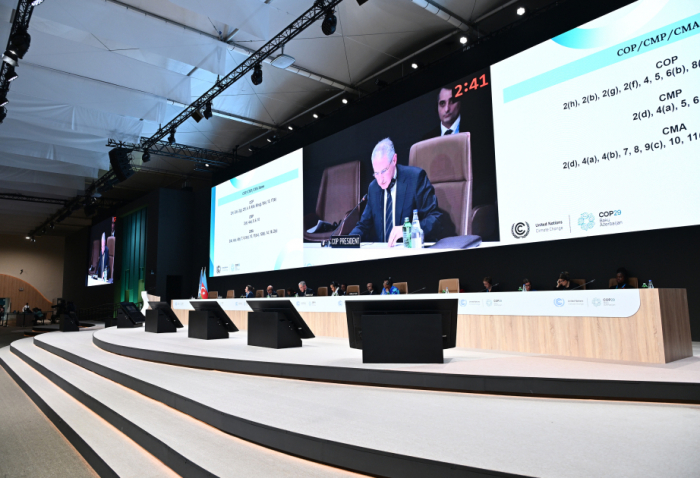Today, the COP29 Presidency announced the end of the decade-long wait for the conclusion of negotiations on high integrity carbon markets under Article 6 of the Paris Agreement. This was one of the Presidency’s top priorities for the year and it drove Parties towards this milestone achievement through intensive dual-track technical and political negotiations. This strategy broke through years of stalemate and finalizes the last outstanding item in the Paris Agreement.
Article 6 provides trusted and transparent carbon markets for countries as they collaborate to reach their climate goals. This cross-border cooperation is expected to reduce the cost of implementing countries’ national climate plans (NDCs) by up to $250 billion per year.
The COP29 Presidency encourages Parties to reinvest these savings in even greater climate ambition. The next generation of NDCs, due in February, are make-or-break for the world’s hopes of keeping 1.5 degrees within reach. Today’s milestone has been reached just in time to aid countries in committing to more ambition in their climate plans.
“We have ended a decade-long wait and unlocked a critical tool for keeping 1.5 degrees in reach,” said COP29 President Mukhtar Babayev. “Climate change is a transnational challenge and Article 6 will enable transnational solutions. Because the atmosphere does not care where emissions savings are made.”
COP29 Lead Negotiator Yalchin Rafiyev commented, “Today, we have unlocked one of the most complex and technical challenges in climate diplomacy. Article 6 is hard to understand, but its impacts will be clear in our everyday lives. It means coal plants decommissioned, wind farms built and forests planted. It means a new wave of investment in the developing world.”
Today’s outcome was hard-won. While the Glasgow and Sharm El-Sheikh COPs were able to establish important rules, modalities and procedures for carbon markets, the final building blocks of Article 6 remained unresolved. Prior to COP29, these negotiations had stalled, resulting in a costly delay in the full functioning of this pathway to greater international climate collaboration.
The COP29 Presidency employed a dedicated approach that unlocked previous multilateral stalemates. Throughout the year, the Presidency fostered productive engagement between Parties and drove progress by bridging the technical and political discussions to create consensus. This set the ground for early adoption of Article 6.4 standards on day one of COP29, which in turn built momentum towards today’s breakthrough.
The COP29 Presidency acknowledges with gratitude the many individuals and organizations that have been working tirelessly for nearly a decade to reach this achievement. Today’s consensus would not have been possible without the progress they achieved through their years of efforts.
The decisions unanimously adopted today on Article 6 will play a pivotal role in ensuring environmental integrity, transparency and robustness of carbon markets through real, additional, verified and measurable emission reductions and removals, while also unleashing their enormous potential to drive global climate investment.
The guidelines and rules adopted are designed to ensure that carbon projects maintain practicality and inclusivity, respect human rights and provide support to sustainable development, enabling countries and project developers to cooperate under the Paris Agreement with confidence. The adoption of these decisions does not mark the end of their evolution. The Parties can continually adjust the Article 6 rulebook as they learn by doing.
More about:
















































